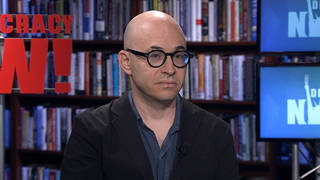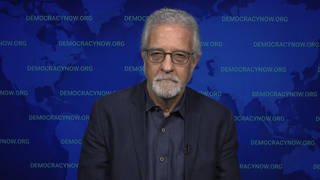We are told that if we tax the rich, that jobs will disappear. That prosperity will dry up. But the numbers tell a different story. In the latest Gaslit Nation, Amber Wallin, executive director of the State Revenue Alliance, joins Andrea to expose the lie at the heart of our economic system. The rich are not fleeing. They are flourishing. And when we make them pay their fair share, everyone flourishes.
Wallin comes armed with data and clarity. She dismantles the disinformation that has allowed the ultra-wealthy to hoard billions while public schools crumble and hospitals close. States that tax high-income earners are not bleeding millionaires. They are gaining revenue and creating more millionaires. They are investing in their people. They are proving what we already know deep down: we can tax the rich and build a society that works for everyone.
The Battle Behind the Budget
For decades, tax policy in America has been a weapon wielded against working people. It has been shaped by lobbyists, shielded by myths, and sold to the public as necessary sacrifice. But history shows us something else. It shows how tax codes have been intentionally designed to protect wealth at the top and starve communities at the bottom.
Wallin makes it clear. We are not fighting numbers. We are fighting a system that tells us scarcity is natural while billionaires pay less in taxes than teachers.
Tax Justice Is Democracy in Action
Economic inequality is a threat to democracy. When wealth concentrates, power concentrates. And when power concentrates, freedom erodes. That is why taxing the rich is not a fringe idea. It is a democratic emergency.
Wallin also emphasizes something often ignored in these conversations: gender equity. Women, especially women of color, are hit hardest by unfair tax systems. Correcting that is not just about fairness. It is about building systems that’s humane.
No One Is Coming to Save Us. We Are the Movement.
This conversation is a call to action. States hold tremendous power to reshape the economy. Community organizing, public pressure, and clear messaging can push forward tax reforms that fund schools, roads, housing, and healthcare. Essential services are not luxuries. They are rights. And the money to pay for them exists.
The only question is whether we have the courage to demand it.
Wallin says it best: free markets are not free. They are designed by and for the wealthy, unless we intervene. Tax policy is not boring. It’s political warfare. And the sooner we treat it that way, the sooner we win.
We are in a moment of extraordinary possibility. Trust your instincts. Trust the data. And above all, trust the power of the people to build wealth and power for everyone.
EVENTS AT GASLIT NATION:
-
NEW DATE! Thursday July 31 4pm ET – the Gaslit Nation Book Club discusses Antoine de Saint Exupéry’s The Little Prince written in the U.S. during America First.
-
Minnesota Signal group for Gaslit Nation listeners in the state to find each other, available on Patreon.
-
Vermont Signal group for Gaslit Nation listeners in the state to find each other, available on Patreon.
-
Arizona-based listeners launched a Signal group for others in the state to connect, available on Patreon.
-
Indiana-based listeners launched a Signal group for others in the state to join, available on Patreon.
-
Florida-based listeners are going strong meeting in person. Be sure to join their Signal group, available on Patreon.
-
Have you taken Gaslit Nation’s HyperNormalization Survey Yet?
-
Gaslit Nation Salons take place Mondays 4pm ET over Zoom and the first ~40 minutes are recorded and shared on Patreon.com/Gaslit for our community
Want to enjoy Gaslit Nation ad-free? Join our community of listeners for bonus shows, exclusive Q&A sessions, our group chat, invites to live events like our Monday political salons at 4pm ET over Zoom, and more! Sign up at Patreon.com/Gaslit!
This content originally appeared on Gaslit Nation and was authored by Andrea Chalupa.
This post was originally published on Radio Free.

